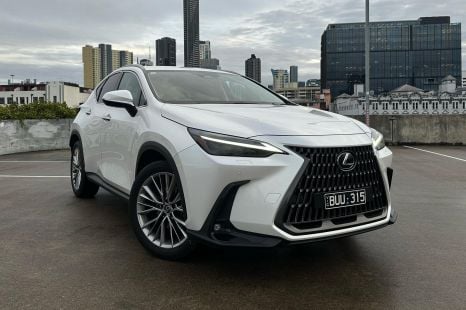

William Stopford
4 Days Ago
The Volkswagen Tayron replaces the Tiguan Allspace and is larger, more distinctively styled and more luxurious.

News Editor
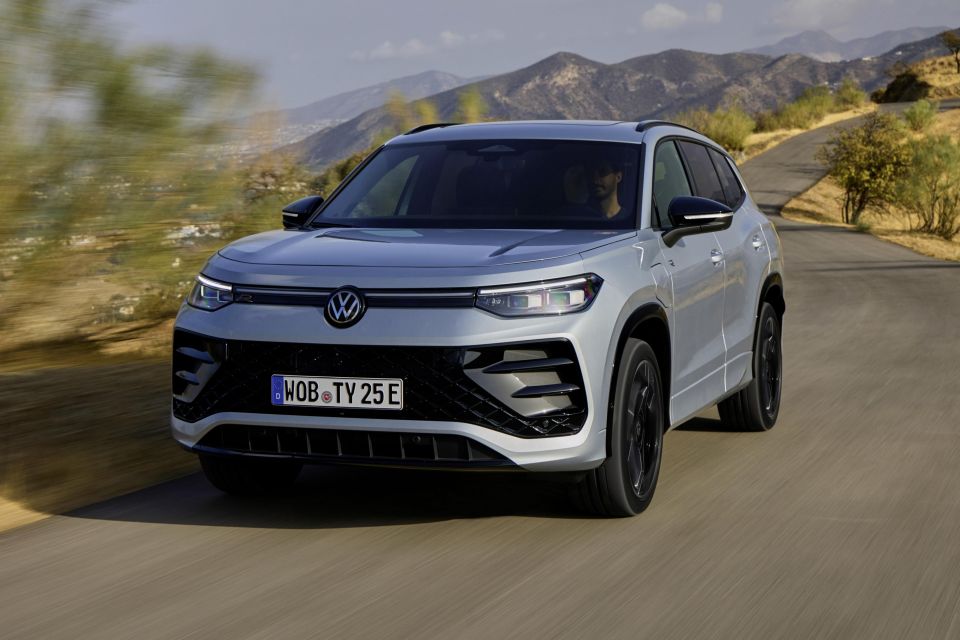

News Editor
Volkswagen has another T name for you to remember: Tayron.
Replacing the Tiguan Allspace, the Tayron is a new SUV that Volkswagen Australia says “will fit ideally” between the Tiguan and Touareg.
It’s due here in late 2025, with the local lineup yet to be announced.
In Europe at least, it’ll be offered in Life, Elegance and R-Line trims and with either five or seven seats, although plug-in hybrid (PHEV) models won’t be available with the third row.
100s of new car deals are available through CarExpert right now. Get the experts on your side and score a great deal. Browse now.
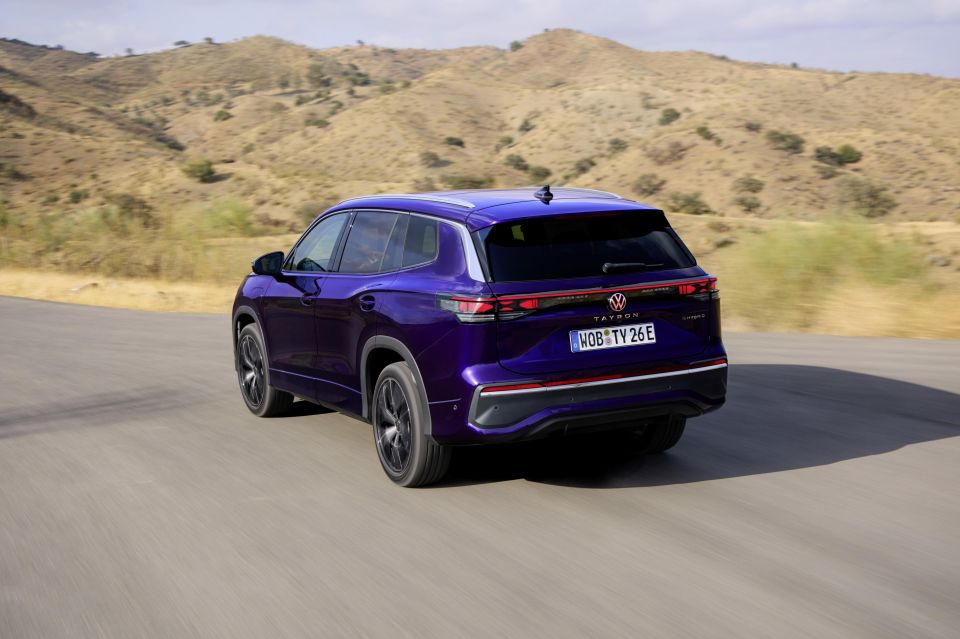
As with the Tiguan Allspace, the Tayron has a clear design kinship with the Tiguan it’s related to, though it’s arguably easier to tell apart from its shorter sibling than before.
Like the new Tiguan, there are more rounded haunches than before and though the front and rear end styling of the two cars are similar, there’s a noticeable difference in the C- and D-pillar area.
Here’s how the new model compares dimensionally:
| Tayron | Tiguan Allspace | 2025 Tiguan | Touareg | |
|---|---|---|---|---|
| Length | 4792mm | 4734mm | 4539mm | 4902mm |
| Width | 1852mm | 1839mm | 1842mm | 1984mm |
| Height | 1660mm | 1689mm | 1640mm | 1718-1757mm |
| Wheelbase | 2791mm | 2790mm | 2677mm | 2904mm |
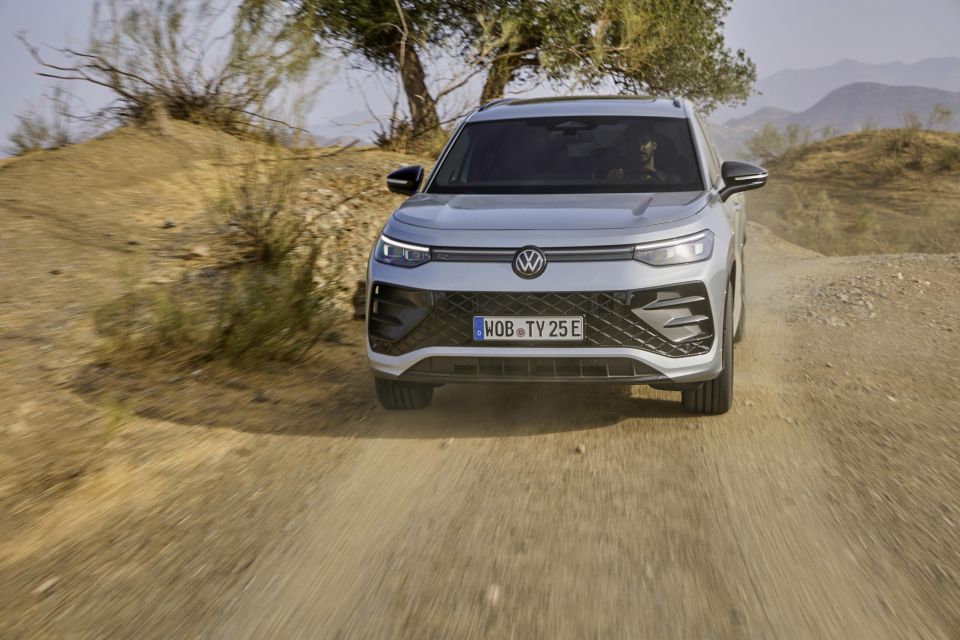
Like the new Tiguan, the Tayron rides on Volkswagen’s MQB Evo platform.
It’ll be offered with a choice of petrol, diesel and plug-in hybrid (PHEV) powertrains, though it’s unclear just which ones will come to Australia.
The eHybrid models, as the PHEVs are known, mate a 1.5-litre turbocharged four-cylinder engine running the Miller cycle with a 19.7kWh battery, an electric motor, and a six-speed eDSG automatic transmission.
Total system outputs are either 150kW and 350Nm or 200kW and 400Nm, depending on the tune, and Volkswagen expects maximum electric range to exceed 100km.
These can be charged at up to 11kW on AC power and at up to 50kW using DC power.
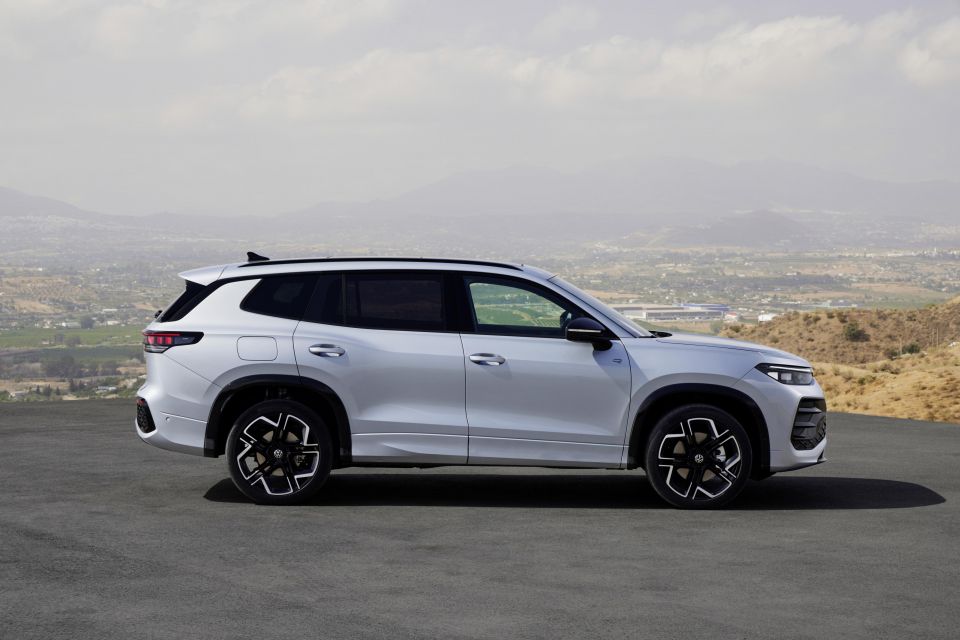
Non-PHEV Tayrons feature a seven-speed dual-clutch automatic transmission, with all bar the least powerful turbo-diesel and turbo-petrol options also coming standard with all-wheel drive.
This latest version of Volkswagen’s 4Motion system sees only the front axle powered under normal driving conditions, with drive sent to the rear only under a higher load or a loss of grip. However, you can manually activate all-wheel drive.
While Volkswagen hasn’t published outputs for 2.0-litre turbo-petrol models, it has confirmed one of the 2.0-litre turbo-diesel engine tunes pumps out 142kW of power and 400Nm of torque.
The entry-level, front-wheel drive petrol model features the same 1.5-litre engine as the eHybrid models, referred to as the 1.5 TSI evo2, and incorporates a mild-hybrid system with a 48V lithium-ion battery and a 48V belt-driven starter-alternator producing 14kW of power and 56Nm of torque.
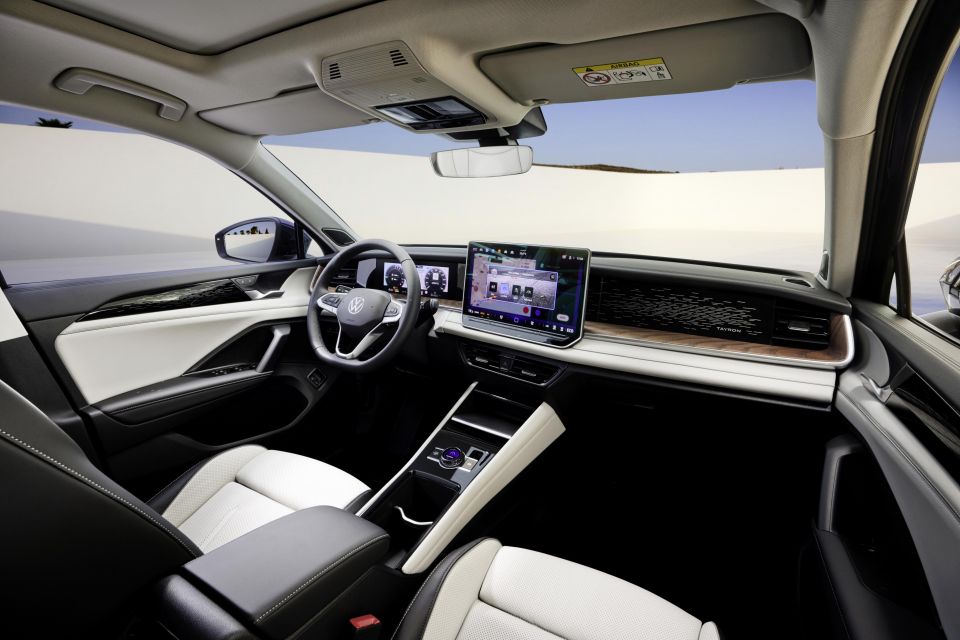
This system gives the Tayron a boost when setting off, and also enables the petrol engine to switched off when coasting to a stop.
The 1.5-litre model can also have two of its cylinders deactivated thanks to Volkswagen’s ACTplus Active Cylinder management.
Volkswagen boasts the Tayron sets new standards for interior design and quality in its segment.
All models feature soft leatherette across the dash panel area, upper door panels, door inserts, and centre console.
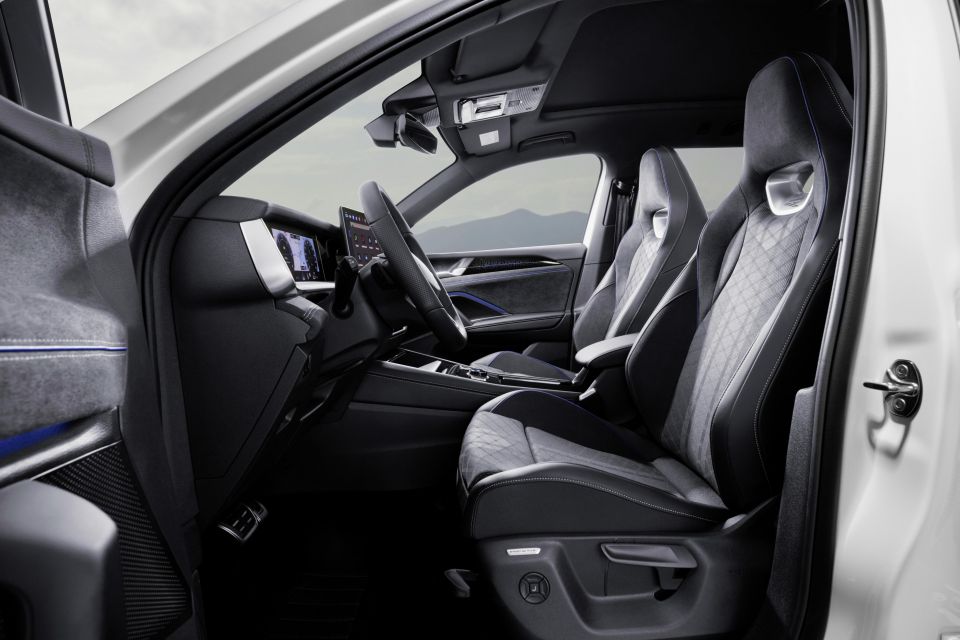
R-Line models feature large sections of the dash and doors finished in ArtVelours Eco trim, as well as aluminium-look trim, while the Elegance offers real open-pore wood trim.
Top-spec models feature ArtVelours Eco trim on the seat cushions as well, while leather will also be available.
There’s a 10.25-inch Digital Cockpit Pro digital instrument cluster and a 12.9-inch touchscreen infotainment system with wireless Apple CarPlay and Android Auto.
An upgraded infotainment system features the same-size screen, but gains satellite navigation and IDA voice assistant with ChatGPT integration; this is also bundled with two wireless phone chargers in the centre console.
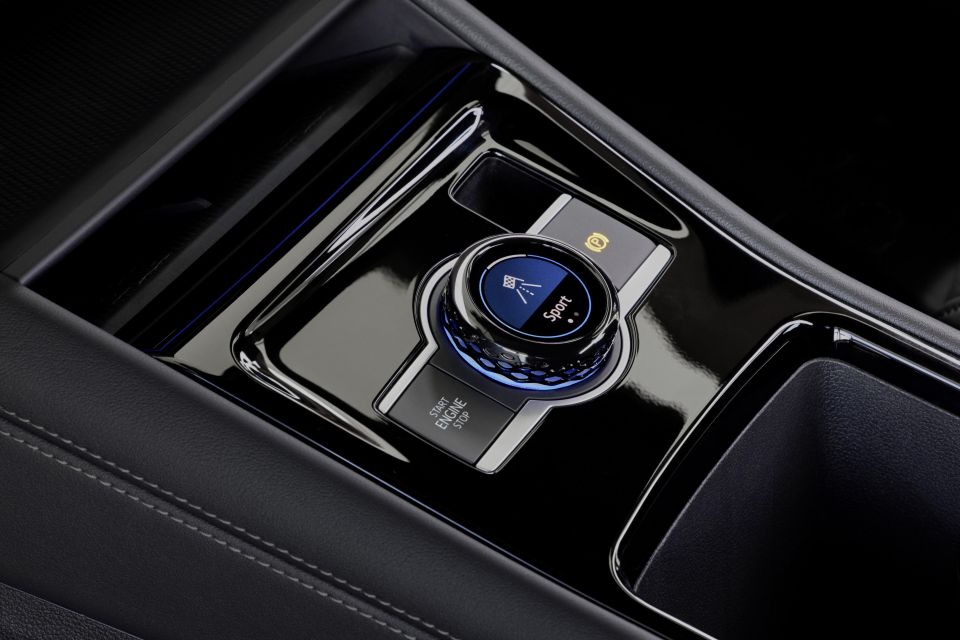
Also available is a Discover Pro Max option, which includes a head-up display.
The gear shifter is on the steering column, while there’s a “multifunctional driving experience control” that can be used to adjust the audio volume, drive mode, and preconfigured “Atmospheres”.
These Atmospheres tweak the standard 10-colour (or optional 30-colour) ambient lighting and the sound system “to create a wide range of lighting and audio moods”.
At the furthest reaches of the cabin, there are bag hooks and a 12V socket, with a 230V socket and netted luggage management system optional. The third row of seating, if equipped, can be folded flat.
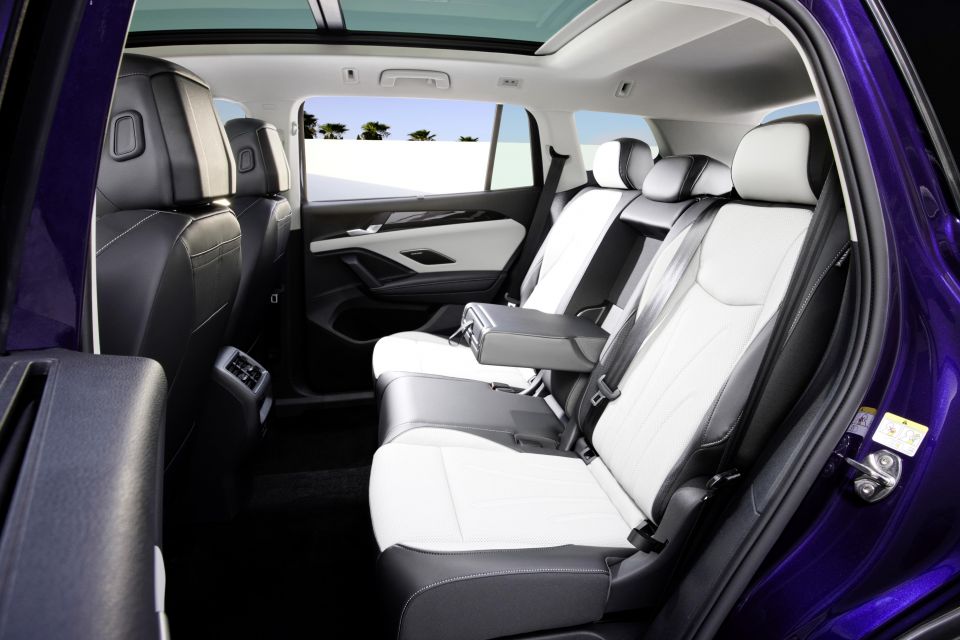
Here’s how the different Tayrons compare in terms of boot space.
| Tayron 5-seat | Tayron 7-seat | Tayron eHybrid 5-seat | |
|---|---|---|---|
| Luggage volume behind third row | – | 345L | – |
| Luggage volume behind second row | 885L | 850L | 705L |
| Luggage volume behind first row | 2090L | 1905L | 1915L |
The Tayron has gained some features not previously offered in the Tiguan Allspace, many of which have come from the pricier Touareg.
Optional ergoActive Plus front seats in the Elegance and R-Line feature electric 14-way adjustment, memory, seat depth adjustment, pneumatic four-way lumbar support adjustment, and pneumatic 10-chamber pressure point massage in the backrests.
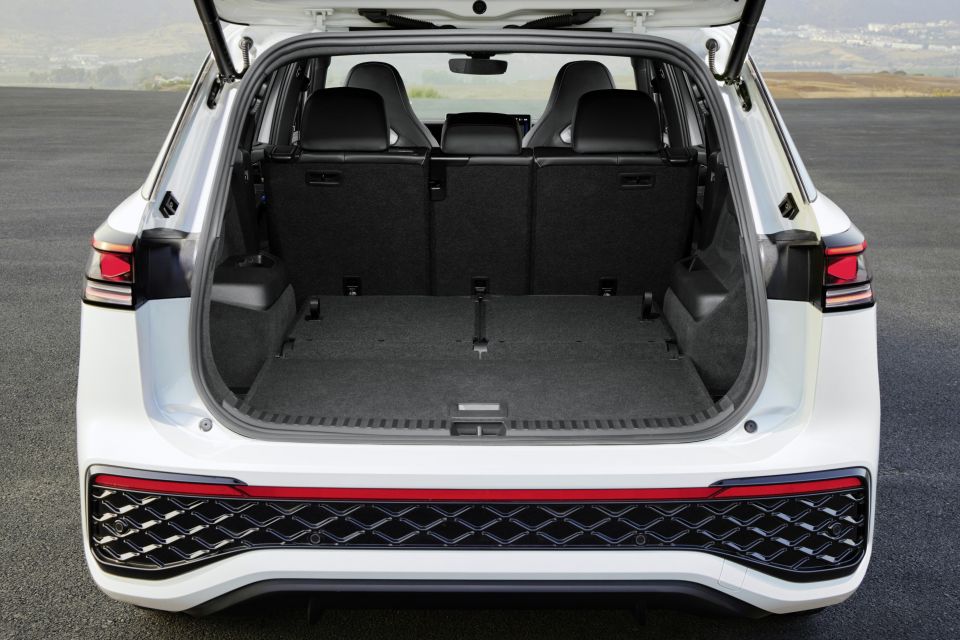
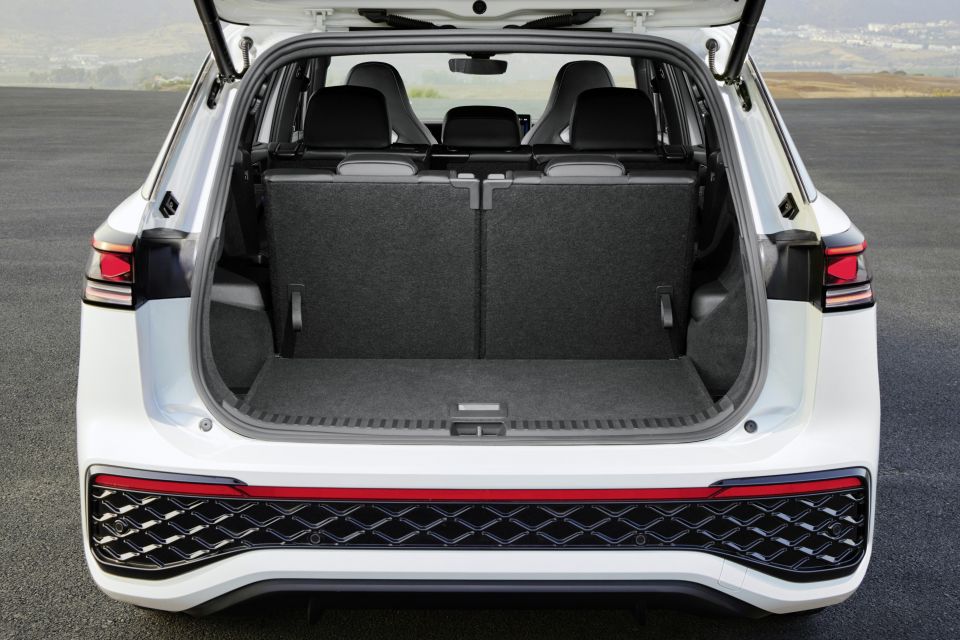
IQ. Light matrix LED headlights are optional, with 19,200 multi pixel LEDs contained within each headlight.
These headlights allow a “carpet of light” to be projected onto a lane, and also incorporate dynamic cornering lights. As with standard matrix LED headlights, they can also block out portions of the road ahead to avoid dazzling other drivers.
The Tayron offers the option of Volkswagen’s latest generation of adaptive suspension, called DCC Pro.
Featuring dampers with two (instead of single) valves and an adapted control algorithm for separate rebound and compression stage control, Volkswagen says this new system allows for a greater variation between settings.
The Tayron will be fitted as standard with Park Assist Plus, allowing for semi-autonomous parking manoeuvres.
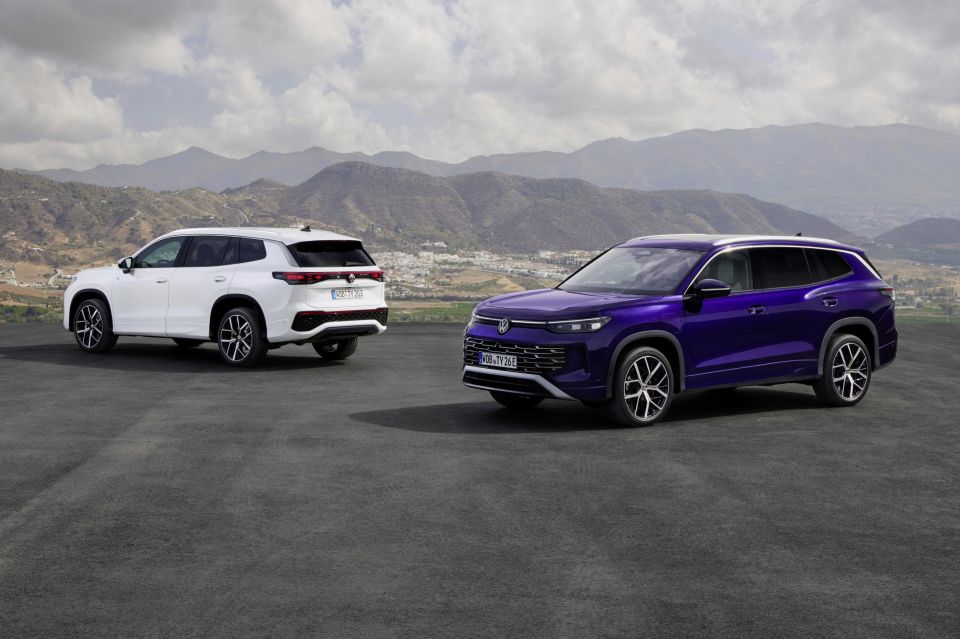
Optional is Park Assist Pro, which includes a memory function that records the last 50 metres driven which can in turn be stored. Up to five of these manoeuvres can be stored.
You can also use the Volkswagen Park Assist Pro app to move the Tayron in and out of parking spaces, effectively allowing your smartphone to be used as a remote control.
The Tayron will be built in Wolfsburg, Germany, where it was developed and designed. Volkswagen sourced the outgoing Tiguan Allspace from Mexico.
While the name is new for Europe and Australia, Tayron badging has previously been applied in China to separate mid-sized SUV.
Click an image to view the full gallery
Take advantage of Australia's BIGGEST new car website to find a great deal on a Volkswagen.
William Stopford is an automotive journalist based in Brisbane, Australia. William is a Business/Journalism graduate from the Queensland University of Technology who loves to travel, briefly lived in the US, and has a particular interest in the American car industry.


William Stopford
4 Days Ago
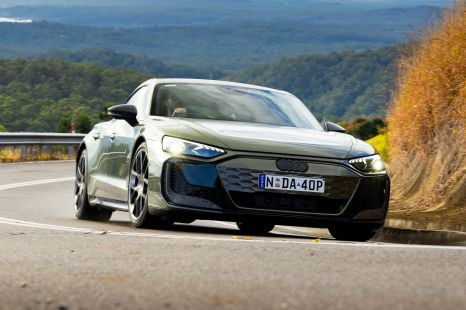

James Wong
3 Days Ago
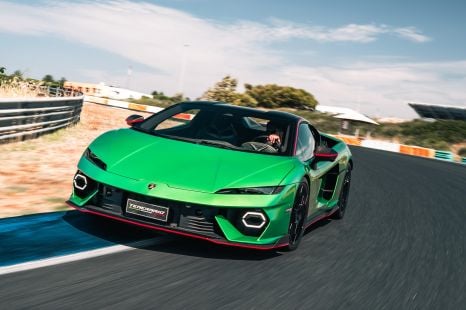

Alborz Fallah
2 Days Ago
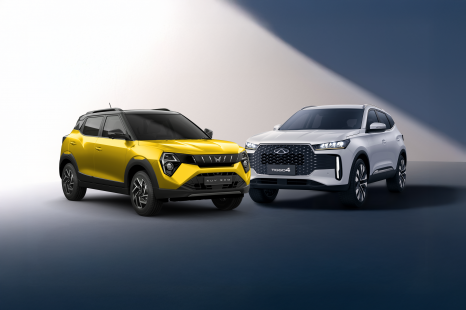

Andrew Maclean
2 Days Ago
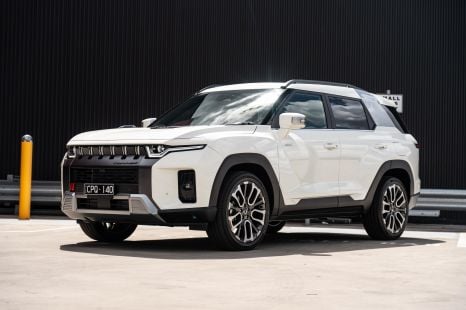

Max Davies
2 Days Ago
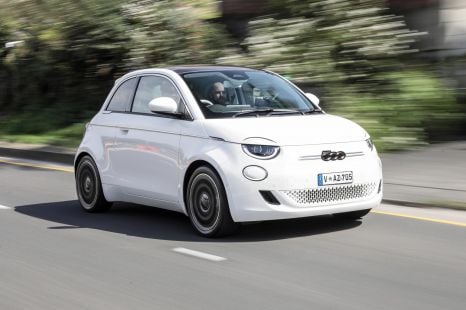

Damion Smy
1 Day Ago